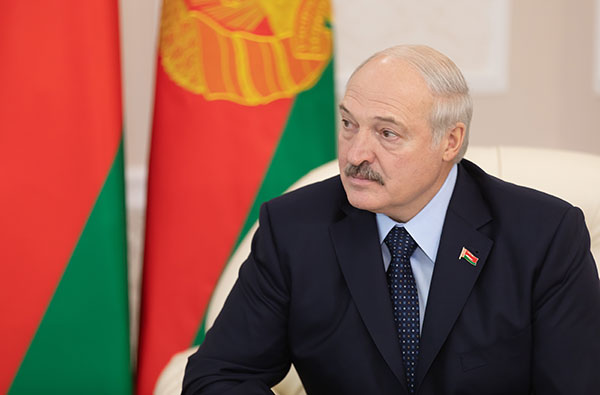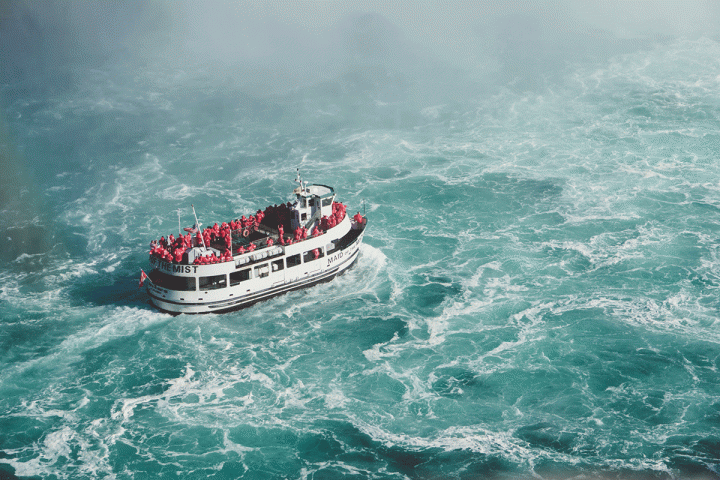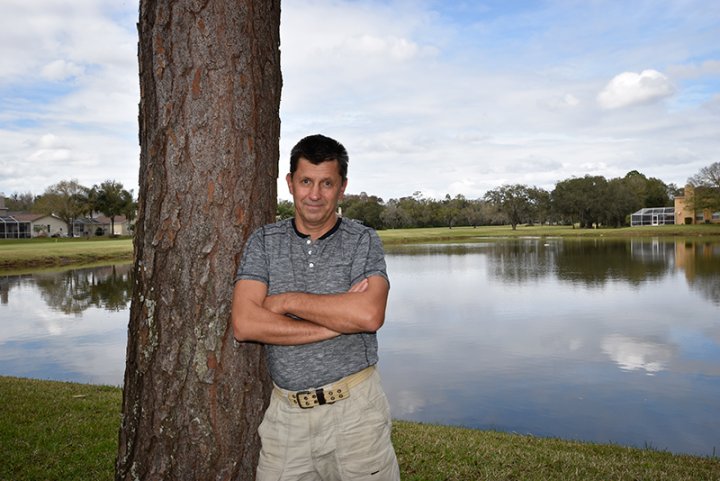Belarus Goes Its Own Way Amid the Pandemic
Is Belarusian government's approach right or wrong?
Truth is a simple but multi-faceted and multi-layered concept. Everyone sees one or more facets of it at a time and passes it off as the final truth, that's why there are so many half-truths (i.e. lies) around. And indeed, it is very difficult to unambiguously answer even a simple question not to mention a global ones - such as the pandemic of coronavirus. Did it really come from China? Is it China's fault? Did the Chinese do it on purpose? If yes, how can they be punished? If not, who is to blame? What do we do now - to take away the quarantine or wait? If to wait - for how long? What is ahead in autumn of 2020? What's in the future?
You will receive millions of answers to these questions and understand nothing. However, coronavirus can make sense in this ocean of opinions. It clearly shows like any ordeal the readiness of different countries to survive in extreme situations, as well as the foresight and effectiveness of the governments as the centers of decision-making for the nations.
Jeffrey D. Sachs in his article "The East-West Divide in COVID-19 Control" combined the damage from coronavirus in different countries of the West and East in deaths per 1 million people and the suspension of economic activity because of quarantine in these same countries. The table shows that the countries of Southeast Asia - Singapore, Taiwan, Hong Kong, South Korea, Japan and even Vietnam - suspended their economies by less than 50% and lost less lives of their citizens than the countries of the West - Germany, UK or the USA. Spain and Italy were almost paralyzed by their quarantines - their economic activity fell by 94% with the highest mortality rate in the world. Thus, the article is about the sustainability and viability of each country in adverse circumstances, as well as the competence and effectiveness of the governments of these countries.
The ideal here is the minimal reduction of economic activity (because everybody needs to eat) with the minimal number of deaths of the citizens. Closing a country for quarantine is a last resort measure, which was used by many states because of their unpreparedness. Now many countries blame China for their troubles. However, it does not matter now - everything has already happened. The West will not declare a war on China for undermining its economy. And it looks like an attempt by the governments to draw the attention of their people away from their own incompetence (https://www.project-syndicate.org/commentary/trump-blaming-china-dangerous-distraction-by-jim-o-neill-2020-04). Mastery is not about getting out of the problem, it's about not getting into it. Competent government has to be prepared for any unfavorable circumstances.
Singapore is often cited as an example of successful fight against coronavirus. It was explained by WHO expert Dale Fisher from National University of Singapore in his article "Why Singapore's coronavirus response worked - and what we can all learn".
Shortly:
- Singapore has long been ready for any pandemic due toits experience with SARS in 2002-2003. They have improved the infrastructure - changed laws and built many specialized infectious disease hospitals.
- On December 31, 2019 when COVID-19 in China became known, Singapore really assessed the threat.
- By the end of January all public hospitals in Singapore could do tests. Then they put into effect enhanced screening - for anyone coming to a hospital with a respiratory illness and anyone who had been in contact with a COVID-19 patient.
- Singapore kept positively tested patients in hospitals and didn't let them go back into the community. If people DIDN'T have symptoms, they had been put in strict and verifiable home quarantine.
- Special contact tracing teams identified all the contacts of the infected persons and had them tested.
- People were informed about the rules of conduct, security measures and about everything, including the situation in other countries. In addition, the government explained that if the rules were not followed, everyone would be put under the quarantine. Everyone "understood and adapted".
Dale Fisher also mentioned in passing maybe the most important thing: "In Singapore, we want life to go on as normal". The leaders of all countries seem to want the same thing, but Singapore not only wants it, but has also done everything needed in advance. Its government learns the lessons of the past, objectively sees and evaluates the present and prepares for the future in the light of this vision. Most other countries in the world couldn't do so and the coronavirus objectively showed that.
There is not big (about 9.5 million people) and not very rich state in Eastern Europe - Belarus. It is a former Soviet republic, which has been being ruled by its president Alexander Lukashenko for last 25 years. Since 1994 Republic of Belarus and Alexander Lukashenko personally have been actively criticized and sanctioned by the US, EU and UN for human rights violations and electoral fraud. In the West, he is considered a dictator.
![Belarus Goes Its Own Way Amid the Pandemic]()
Alexander Lukashenko. Image from Shutterstock. com
Belarus is one of the only two countries in Europe (another one is Sweden), which has not changed its lifestyle amid the coronavirus pandemic. The borders are open, there are no official quarantine or social-distancing demands, production, agriculture, public transportation, churches, restaurants, bars, schools, gyms work and the president himself meets with his subordinates and citizens without a mask. He calls the attitude to coronavirus in the world "psychosis", assures that Belarus has prepared in advance for the outbreak of infection, and will cope without the quarantine. Moreover, President Lukashenko is going to hold an annual parade on May 9 to mark the 75th anniversary of the defeat of Nazi Germany while even Putin refused it in Russia.
The collective West represented by the World Health Organization is very concerned about the situation in Belarus and not only it - some Belarusian citizens take measures to isolate themselves and crowdfund to fight coronavirus, a lot of families keep children out of schools.
It seems that everything is clear. Belarusian president Lukashenko usurped the power and didn't care about his people, putting them largely under the threat of coronavirus infection. The Washington Post in the same article took the liberty to explain this phenomenon in the following way: "In summer 2020, Alexander Lukashenko will run for his sixth term in office. By not labeling the virus as a threat, the Belarusian government diverts attention from its limited capabilities to assist people in need".
Well, maybe.
However, a perplexity comes while looking at the interactive map of coronavirus spread in the world.
As of May 4, 2020 Belarus has 176 infected people and 1 death per 100,000 inhabitants, while the USA has 356 and almost 21 respectively. So who is better prepared for the coronavirus' coming? Who does cope with it more effectively? What government is more competent? What healthcare system is better organized?
Yes, there is a difference between the two countries in terms of the timing of the spread of disease , the number and quality of tests, etc... And there are also doubts about the trustworthiness of the information about the coronavirus from Belarus... As well as about the data from the US and any other country... However, there are no other data and one should either accept information from each country as it is or not accept information from all countries at all.
The difference in quantity of COVID-19 deaths is huge in the USA and Belarus. And now add here the fact that Belarus keeps working - grain crops and leguminous crops have been planted on 89.2% of the targeted areas, it sells fertilizers to China, reduces external state debt, purchases oil from Russia for $4 per barrel ...
That is what Dale Fisher from the National University of Singapore meant while saying "... we want life to go on as normal". Life goes on in Belarus as of now, so The Washington Post has no moral right to teach Belarusians how to fight the pandemics correctly.
Thus, there are two opposite views on the situation with coronavirus in Belarus.
The point of view of the authorities is "We have responded adequately, but not excessively". The point of view of the West and some part of the Belarusians is "we should put a quarantine into operation" (see above).
Who is right then? It is unknown yet. The truth is not immediately visible for such a big object as a country, but the coronavirus for sure will show it in time.
I agree with the last paragraph in The Washington Post article: " If the pandemic threat resolves before the presidential election, then the government will be able to credit itself with the successful fight against the coronavirus. And if the pandemic continues longer, this approach could well backfire, triggering popular unrest in the country, and jeopardizing relations with the West".
August 9, 2020 is the day of presidential elections in Belarus and we will see the final assessment of Lukashenko administration's actions by the people, including the fight against coronavirus. It is quite democratic. Of course, there is a "but" here - whether the authorities will rig the election results. However, in any case the coronavirus death toll will show in a few months whether President Lukashenko's stubborn position is right or wrong.
Update on June 19, 2020:
- On May 9, despite the WHO social-distancing recommendations, the annual Victory Day military parade took place in Minsk, reportedly involving more than 15,000 spectators and 4,000 military personnel.
- On 11 June, the 14-day self-quarantine requirement, issued on 9 April, was lifted from persons entering Belarus from 37 countries and all foreign citizens entering Belarus must provide a PCR-based COVID-19 test certificate instead.
- Belarus still did not enforce any lockdown measures in the country and shops, schools and public transport continue to function normally. The New York Times interactive map shows 597 new coronavirus cases and 3 deaths per 100,000 residents in Belarus as of June 19th, 2020. The US data for the same date are 673 new cases and 36 deaths respectively.
P.S. Dear Reader! I am very much interested in your opinion on the subject of this article. Please, write a comment or ask a question if you want to clarify something.
Yours,
Igor Chykalov
Truth is a simple but multi-faceted and multi-layered concept. Everyone sees one or more facets of it at a time and passes it off as the final truth, that's why there are so many half-truths (i.e. lies) around. And indeed, it is very difficult to unambiguously answer even a simple question not to mention a global ones - such as the pandemic of coronavirus. Did it really come from China? Is it China's fault? Did the Chinese do it on purpose? If yes, how can they be punished? If not, who is to blame? What do we do now - to take away the quarantine or wait? If to wait - for how long? What is ahead in autumn of 2020? What's in the future?
You will receive millions of answers to these questions and understand nothing. However, coronavirus can make sense in this ocean of opinions. It clearly shows like any ordeal the readiness of different countries to survive in extreme situations, as well as the foresight and effectiveness of the governments as the centers of decision-making for the nations.
..........
Jeffrey D. Sachs in his article "The East-West Divide in COVID-19 Control" combined the damage from coronavirus in different countries of the West and East in deaths per 1 million people and the suspension of economic activity because of quarantine in these same countries. The table shows that the countries of Southeast Asia - Singapore, Taiwan, Hong Kong, South Korea, Japan and even Vietnam - suspended their economies by less than 50% and lost less lives of their citizens than the countries of the West - Germany, UK or the USA. Spain and Italy were almost paralyzed by their quarantines - their economic activity fell by 94% with the highest mortality rate in the world. Thus, the article is about the sustainability and viability of each country in adverse circumstances, as well as the competence and effectiveness of the governments of these countries.
The ideal here is the minimal reduction of economic activity (because everybody needs to eat) with the minimal number of deaths of the citizens. Closing a country for quarantine is a last resort measure, which was used by many states because of their unpreparedness. Now many countries blame China for their troubles. However, it does not matter now - everything has already happened. The West will not declare a war on China for undermining its economy. And it looks like an attempt by the governments to draw the attention of their people away from their own incompetence (https://www.project-syndicate.org/commentary/trump-blaming-china-dangerous-distraction-by-jim-o-neill-2020-04). Mastery is not about getting out of the problem, it's about not getting into it. Competent government has to be prepared for any unfavorable circumstances.
..........
Singapore is often cited as an example of successful fight against coronavirus. It was explained by WHO expert Dale Fisher from National University of Singapore in his article "Why Singapore's coronavirus response worked - and what we can all learn".
Shortly:
- Singapore has long been ready for any pandemic due toits experience with SARS in 2002-2003. They have improved the infrastructure - changed laws and built many specialized infectious disease hospitals.
- On December 31, 2019 when COVID-19 in China became known, Singapore really assessed the threat.
- By the end of January all public hospitals in Singapore could do tests. Then they put into effect enhanced screening - for anyone coming to a hospital with a respiratory illness and anyone who had been in contact with a COVID-19 patient.
- Singapore kept positively tested patients in hospitals and didn't let them go back into the community. If people DIDN'T have symptoms, they had been put in strict and verifiable home quarantine.
- Special contact tracing teams identified all the contacts of the infected persons and had them tested.
- People were informed about the rules of conduct, security measures and about everything, including the situation in other countries. In addition, the government explained that if the rules were not followed, everyone would be put under the quarantine. Everyone "understood and adapted".
Dale Fisher also mentioned in passing maybe the most important thing: "In Singapore, we want life to go on as normal". The leaders of all countries seem to want the same thing, but Singapore not only wants it, but has also done everything needed in advance. Its government learns the lessons of the past, objectively sees and evaluates the present and prepares for the future in the light of this vision. Most other countries in the world couldn't do so and the coronavirus objectively showed that.
..........
There is not big (about 9.5 million people) and not very rich state in Eastern Europe - Belarus. It is a former Soviet republic, which has been being ruled by its president Alexander Lukashenko for last 25 years. Since 1994 Republic of Belarus and Alexander Lukashenko personally have been actively criticized and sanctioned by the US, EU and UN for human rights violations and electoral fraud. In the West, he is considered a dictator.

Alexander Lukashenko. Image from Shutterstock. com
Belarus is one of the only two countries in Europe (another one is Sweden), which has not changed its lifestyle amid the coronavirus pandemic. The borders are open, there are no official quarantine or social-distancing demands, production, agriculture, public transportation, churches, restaurants, bars, schools, gyms work and the president himself meets with his subordinates and citizens without a mask. He calls the attitude to coronavirus in the world "psychosis", assures that Belarus has prepared in advance for the outbreak of infection, and will cope without the quarantine. Moreover, President Lukashenko is going to hold an annual parade on May 9 to mark the 75th anniversary of the defeat of Nazi Germany while even Putin refused it in Russia.
The collective West represented by the World Health Organization is very concerned about the situation in Belarus and not only it - some Belarusian citizens take measures to isolate themselves and crowdfund to fight coronavirus, a lot of families keep children out of schools.
It seems that everything is clear. Belarusian president Lukashenko usurped the power and didn't care about his people, putting them largely under the threat of coronavirus infection. The Washington Post in the same article took the liberty to explain this phenomenon in the following way: "In summer 2020, Alexander Lukashenko will run for his sixth term in office. By not labeling the virus as a threat, the Belarusian government diverts attention from its limited capabilities to assist people in need".
Well, maybe.
However, a perplexity comes while looking at the interactive map of coronavirus spread in the world.
As of May 4, 2020 Belarus has 176 infected people and 1 death per 100,000 inhabitants, while the USA has 356 and almost 21 respectively. So who is better prepared for the coronavirus' coming? Who does cope with it more effectively? What government is more competent? What healthcare system is better organized?
Yes, there is a difference between the two countries in terms of the timing of the spread of disease , the number and quality of tests, etc... And there are also doubts about the trustworthiness of the information about the coronavirus from Belarus... As well as about the data from the US and any other country... However, there are no other data and one should either accept information from each country as it is or not accept information from all countries at all.
The difference in quantity of COVID-19 deaths is huge in the USA and Belarus. And now add here the fact that Belarus keeps working - grain crops and leguminous crops have been planted on 89.2% of the targeted areas, it sells fertilizers to China, reduces external state debt, purchases oil from Russia for $4 per barrel ...
That is what Dale Fisher from the National University of Singapore meant while saying "... we want life to go on as normal". Life goes on in Belarus as of now, so The Washington Post has no moral right to teach Belarusians how to fight the pandemics correctly.
..........
Thus, there are two opposite views on the situation with coronavirus in Belarus.
The point of view of the authorities is "We have responded adequately, but not excessively". The point of view of the West and some part of the Belarusians is "we should put a quarantine into operation" (see above).
Who is right then? It is unknown yet. The truth is not immediately visible for such a big object as a country, but the coronavirus for sure will show it in time.
I agree with the last paragraph in The Washington Post article: " If the pandemic threat resolves before the presidential election, then the government will be able to credit itself with the successful fight against the coronavirus. And if the pandemic continues longer, this approach could well backfire, triggering popular unrest in the country, and jeopardizing relations with the West".
August 9, 2020 is the day of presidential elections in Belarus and we will see the final assessment of Lukashenko administration's actions by the people, including the fight against coronavirus. It is quite democratic. Of course, there is a "but" here - whether the authorities will rig the election results. However, in any case the coronavirus death toll will show in a few months whether President Lukashenko's stubborn position is right or wrong.
..........
Update on June 19, 2020:
- On May 9, despite the WHO social-distancing recommendations, the annual Victory Day military parade took place in Minsk, reportedly involving more than 15,000 spectators and 4,000 military personnel.
- On 11 June, the 14-day self-quarantine requirement, issued on 9 April, was lifted from persons entering Belarus from 37 countries and all foreign citizens entering Belarus must provide a PCR-based COVID-19 test certificate instead.
- Belarus still did not enforce any lockdown measures in the country and shops, schools and public transport continue to function normally. The New York Times interactive map shows 597 new coronavirus cases and 3 deaths per 100,000 residents in Belarus as of June 19th, 2020. The US data for the same date are 673 new cases and 36 deaths respectively.
---------------------------------------------------------------------------
P.S. Dear Reader! I am very much interested in your opinion on the subject of this article. Please, write a comment or ask a question if you want to clarify something.
Yours,
Igor Chykalov
Comment
✚ Add comment







